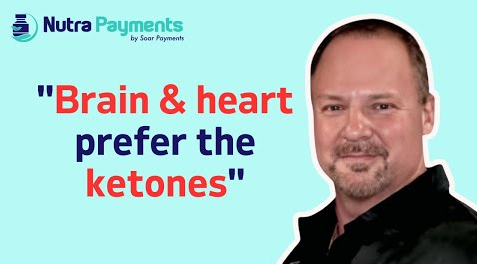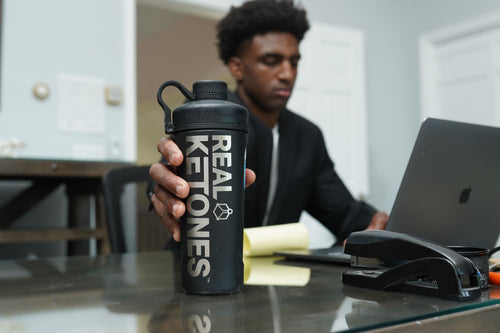Floating, float therapy, or sensory deprivation, is a multi-beneficial modality, traditionally applied to relieve anxiety, depression, stress, addiction, trauma, and a host of other biopsychosocial issues wherein stress and/or trauma are stored in the body.
Remember, The Body Keeps The Score. This is where health, fitness, performance, and the mind-body component intersect.
For those who don't know, floating involves laying in a pod filled with Epsom salt, minerals, and water warmed to the temperature of your body. You lay in the water, buoyant (because of the magnesium content), with the sensation of floating (the water matching your body's temperature helps augment this sensation). The pods are designed for short-term sensory deprivation.
Floating is a favorite modality for quality of life, but it has also transcended into work with health, fitness, and performance. While floating sounds like something on the woo side of things, that's fine. On paper, it IS. But the reality is there's a ton of research demonstrating the effects of floating on the body, so now we not only understand that there are benefits, but we're beginning to understand some of the mechanisms.
This transcends to health, fitness, and even sports performance. A long, hard look at sports scientist Bob Mangine’s work is worthwhile to learn here. Bob has been implementing floating as a modality for athlete recovery, wellness, and fitness in the collegiate setting.
There are a number of things to tease out, but let's focus on a few:
-The demonstrated effect on the body
-Subjective quality of life reporting of athletes
-Translation to wins-effects on athletic performance
The space between
The effects of floating on the body are multi-factorial and include soft tissue healing, anxiety relief, stress reduction, trauma therapy, headache alleviation, relaxation, increased circulation, enhanced sleep quality, meditation-promotion/training, and reversing effects of stress on the body, be it actual (overtraining in athletes, autoimmune conditions), all the way to the stress/trauma side of the spectrum.
That last bit is especially intriguing, as improvements in regulation/synthesis of hormones, neurotransmitter production, and autonomic balance have been observed. You see, states of prolonged 'fight-or-flight', or sympathetic states of the nervous system, have the effect of training our cellular energy via additional taxation on the mitochondria (the batteries of the cells that power EVERYTHING we do). This built-in survival mechanism helps us during bouts of exercise and for survival. Unfortunately, in modern society, you can see overtraining in the athletic community, as well as stress/trauma/burnout, which can go for all of us. Our body doesn't know whether this state is because of an overflow of work e-mails, a busy schedule, overtraining, or whether there's a 300lb tiger chasing us.
The simple explanation here is that additional biological 'resources'/'energy' gets allotted to 'defense' of the attacker that may or may not be there. The downstream effects of this process see the diminished quality of processes deemed 'secondary' by the body, including hormone production, detoxification, sleep, muscle growth, fat loss, immune function, and much more. So when we can find things that help regulate the nervous system for balance, the importance can't be understated.
In the athletic community, the Golden State Warriors are the most famous, contemporary patrons of float therapy, with Steph Curry even doing float commercials that promote mental training.
Being able to measure some of the physiological effects of pre/post floating on the body really helps here. Bob Mangine and others use the Omegawave System.. You can use the Omegawave to monitor athlete readiness, windows of trainability, the athlete's physiology (and it's continued progress during our work together), and as a summary tool for a persons 'inputs' on the body. This includes diet, breathwork, sleep quality, and life load-emotions, thoughts, spiritual state, stress, trauma-collectively known as allostatic load.
Omegawave session on BJJ legend, Mikyo Riggs-it was relevant in our health/fitness/performance to consult to his goals and starting point.
The killer thing here with Omegawave is using it as a tool (along with blood work) to demonstrate the effects of floating, as referenced in Mangine's work. The measured effects of autonomic balance (balance between fight/flight and rest/digest, or sympathetic and parasympathetic tone, respectively), as well as the improvements in cortisol, are key. It should also be noted that brain analytics have produced notable changes in conjunction with floating, including Theta wave production.
Tapping The Void
This is cool because rather than having simply an Eastern Medicine understanding of floating, we can merge that with something of a Western Medicine mechanistic understanding. If you don't know the difference, Eastern medicine often works, but perhaps without as much X’s & O’s understanding of the mechanisms at play. It's often directionally accurate, but not all variables involved are necessarily working, even if most are. Most importantly, it produces results better than Western Medicine traditionally, as it often addresses root cause over treating symptoms. This is relevant because if someone needs results quick, they may not have time to wait to fully understand which mechanism works for their unique health/fitness/performance need. That said, if we can understand mechanisms with hard science, we can be more accurate in our proprietary constellations of recommendations-thus, a unique marriage for best practice is enabled.
In a nutshell, we can use various informed tests to show us hallmarks that let us know we're enabling our target state of health and performance. Omegawave and blood work are just a couple, but others exist, such as neurofeedback.
Here are a few examples of using the Omegawave and blood work to analyze the athlete's physiology, in conjunction with diet, lifestyle, restoration, and training interventions based on said physiology. Instead of using cookie-cutter templates for diet and training, we can now use the athlete's physiology to guide our training, health, and diet decisions.
In a nutshell, this is the new wave of coaching-creating strength & conditioning, health and nutrition programs that also factor in 'life' and the human experience to give people another dimension of feeling and performing well. Soul & Sport. Floating-and other ways to drive the human experience-absolutely fits into this larger, holistic framework of self-optimization.
I know what you're thinking-data is great, but it is mute if it's not also matched by how an athlete/individual feels and performs. The good news is that subjective, quality-of-life benefits, including stress reduction, anxiety relief, trauma therapy, relaxation, pain relief, flow state enhancement, and a heightened ability to let go of thoughts and be present are all some of the personal reports from those who undergo float therapy as a biohack.
How is this going to translate to wins, fitness, and performance, you ask? Well, we know that health drives performance, despite the mainstream fitness community's (and Western Medicine on the whole's) insistence on low rent, reductionist thinking, in which everything is compartmentalized and nothing relates.
All we're doing is creating a healthier, fitter person, or athlete, who then is better equipped physiologically-& wholly-to handle stress (life or training natured) and compete.
This gets tricky because there isn't, say, a 12-week double-blind study to point to. We absolutely can point to research in that box when it comes to results in the body, and then we can also extrapolate that into knowing that said physiological enhancements are known to drive performance. Those studies are all out there. That should suffice for the non-athlete population.
In terms of cause-and-effect relationships on floating and athletic performance? What can we point to, then? We can point to cause-and-effect relationships that are at least, empirical in nature. The University of Cincinnati has analyzed the effects of floating and not only demonstrated the above physiological and quality of life benefits but have also seen it translate into wins. The Golden State Warriors have also been alright since 2014. In the future, I'm hopeful we can see more individual markers included in some studies here, even if we know we can follow a logical thought pattern to know that better health/body/biopsychosocial state better equips one to have better athletic and fitness results.
Adapt & Evolve.

 ACCOUNT
ACCOUNT
 CART
CART





